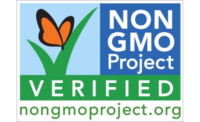Two California mothers are suing General Mills, claiming the giant food company has deceptively marketed its Nature Valley products as natural when they contain highly processed ingredients. The women are seeking to turn the suit into a class action that would win the profits the company has made selling the Nature Valley line that contains such ingredients.
Amy McKendrick, one of the mothers, reportedly says that she really only wanted to make other parents aware that products they were buying to avoid dyes and processed ingredients for health reasons may not be as pure as they thought, based on what they read on packaging. This is the latest case in a number of lawsuits that have been filed lately against General Mills, accusing the company of using deceptive advertising for its products. Currently, there are no legal requirements or restrictions for using the label “natural” on foods, and it can be a meaningless marketing term, but consumers nevertheless tend to value it.
“I’ve figured out now that something can say it’s 100% natural on the outside and not be 100% natural,” says McKendrick. “I want to make sure other people making purchases understand that, too.”
Kirstie Foster, spokesperson for General Mills, says in an e-mail that the company hadn’t seen the lawsuit. “We are aware of the press release, but to our knowledge, we have not been served with a lawsuit,” she says, referring to a news release sent out by the plaintiffs’ lawyers.
Studies have found that consumers prefer foods described as “natural” to those labeled “organic,” however. Both segments are growing and profitable. But food labeled “organic” must meet verifiable standards set by the federal government, while food labeled “natural” has no such requirements.
The words “natural” and “nature” are printed on the Nature Valley packages, and the brand’s social media presence is dominated by images of nature and wildlife. “General Mills seeks to capitalize on consumers’ preference for all-natural foods and the association between such foods and a wholesome way of life,” according to the lawsuit. “Consumers are willing to pay more for natural foods because of this association, as well as the perceived higher quality, health and safety benefits and low impact on the environment associated with products labeled as ‘natural.’”
At issue are three ingredients: The sweeteners high-fructose corn syrup, high-maltose corn syrup and maltodextrin, a thickener than can also impart a slight sweetness to food.
Source: www.nytimes.com, www.finance.yahoo.com



